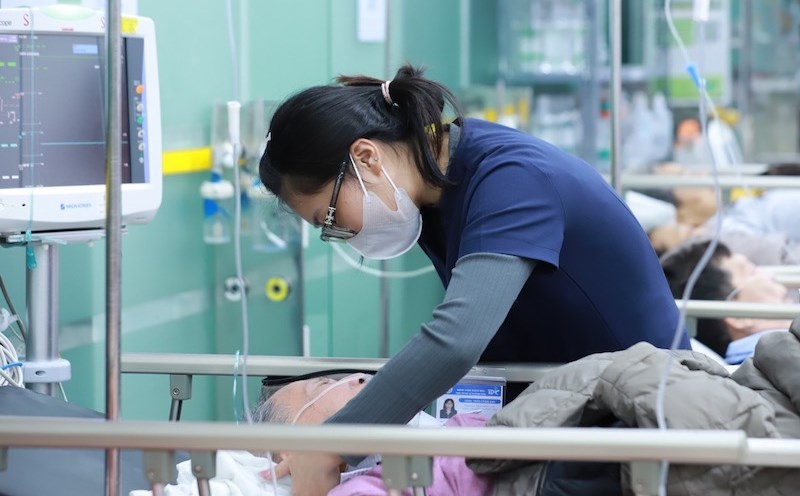According to Decree 56/2011/ND-CP, civil servants who do not directly work in healthcare in public health service institutions are still entitled to preferential allowances according to their profession. This regulation is supplemented in Decree 05/2023/ND-CP and some contents are replaced by Decree 96/2023/ND-CP.
Specifically, the highest preferential allowance is 70%, applied to civil servants and public employees directly working in areas with high risk factors such as HIV/AIDS, leprosy, tuberculosis, psychiatry, forensic examination, forensic psychiatry, pathological pathology.
The 60% rate applies to those who regularly examine and treat emergency, infectious, testing and quarantine patients in border health.
50% is for civil servants working in the departments of anesthesia, resuscitation, intensive care, pediatrics, burns, anti-poisoning and dermatology.
The 40% rate applies to professional positions such as preventive medicine, testing, rehabilitation, medical assessment, traditional medicine, pharmaceuticals, cosmetics, food safety, medical equipment and reproductive health.
For civil servants who do not directly work in healthcare or do management and service work at healthcare units, the preferential allowance according to the applied profession is 30%.
For civil servants and public employees who are not professional but participate in management, service at the unit, or do medical work at agencies and schools, the head of the unit has the right to consider and decide on allowances but not exceeding 20% of the current salary scale, grade and other allowances.
Thus, according to current regulations, civil servants who do not directly practice healthcare at public health facilities are entitled to a preferential allowance of 30%.
In addition, for civil servants who do not directly practice healthcare (except for those who are entitled to a 30% allowance), the head of the unit shall consider and decide based on the specific work and revenue sources but not exceeding 20% of the current salary scale and grade plus leadership position allowance, seniority allowance exceeding the framework (if any) of the beneficiary.










